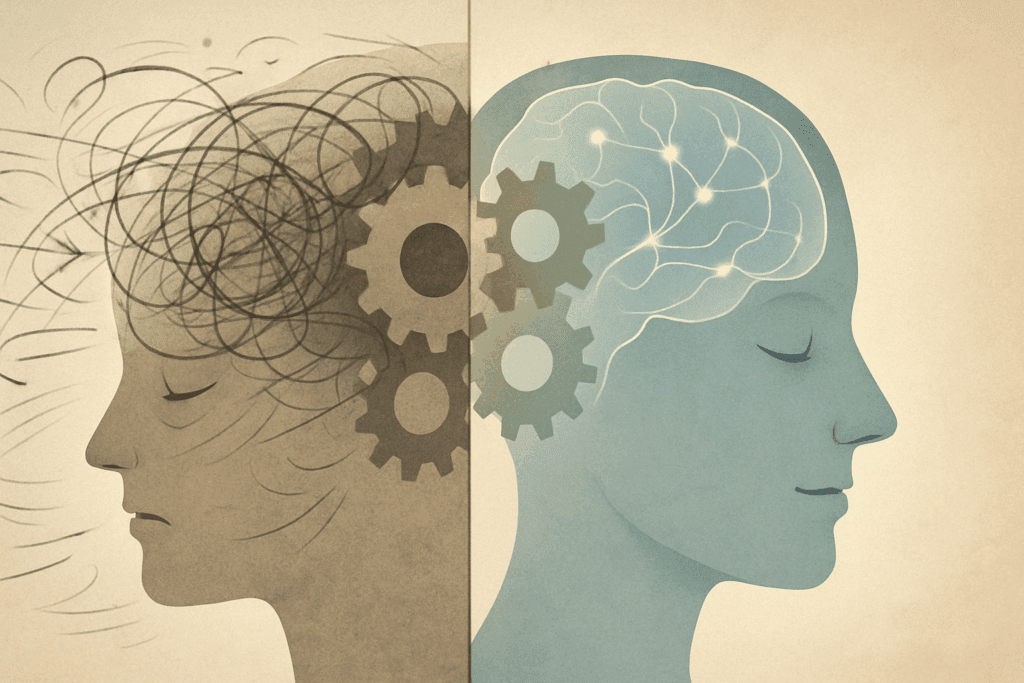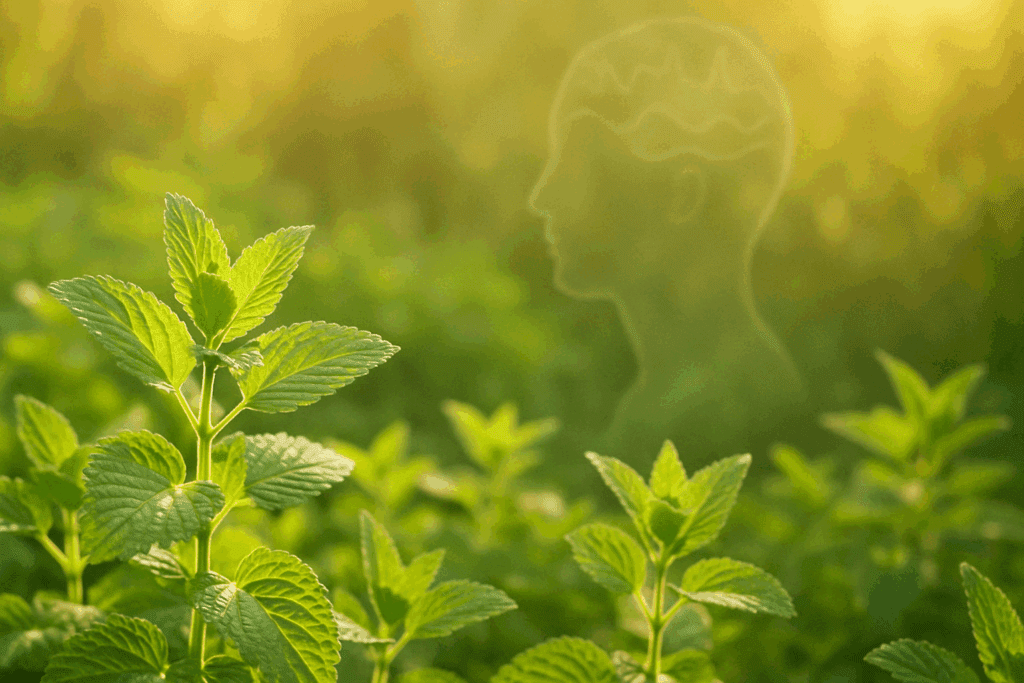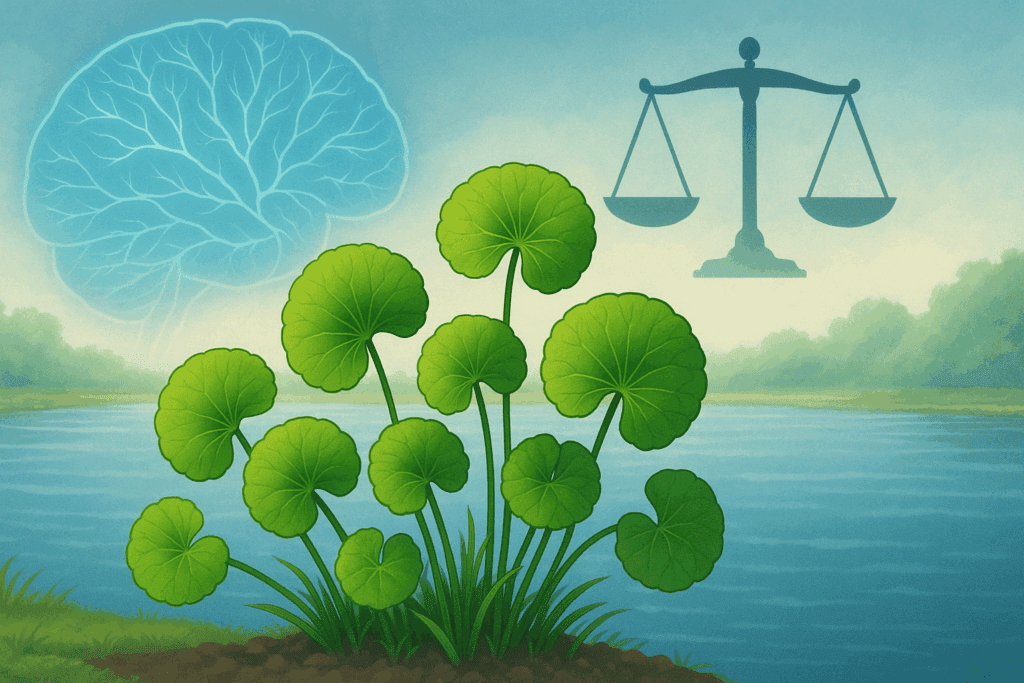Introduction: Embracing Natural Solutions for ADHD and Stress Management
In today’s fast-paced world, conditions like Attention-Deficit/Hyperactivity Disorder (ADHD) and chronic stress have become increasingly intertwined. As awareness grows, so does the interest in exploring natural remedies that offer cognitive support without the harsh side effects often associated with pharmaceutical interventions. For those managing ADHD, enhancing focus, mood, and cognitive clarity is a daily priority. Similarly, the search for effective supplements for stress relief, stress reducing supplements, and natural stress relief supplements has become paramount for individuals seeking balance and mental well-being. Herbs, revered for centuries across various cultures, present promising alternatives. Their potent biochemical properties not only support cognitive health but also serve as excellent supplements to help with stress, creating a synergy that modern science is now beginning to understand and appreciate.
You may also like: Where to Buy Bacopa Monnieri: How to Find Quality Supplements for Cognitive and Memory Support
Understanding ADHD: A Holistic Perspective
ADHD is far more complex than a simple inability to pay attention. It affects executive function, emotional regulation, and impulse control. Many individuals with ADHD also experience heightened levels of anxiety and stress, creating a feedback loop that worsens symptoms. Traditional treatments often rely on stimulant medications, but these are not suitable for everyone. Some experience adverse effects like insomnia, irritability, or increased blood pressure. Hence, the rising interest in natural supplements for stress and cognitive enhancement. Recognizing the interplay between mood regulation and ADHD symptoms highlights the importance of exploring herbs that offer a twofold benefit: supporting mental clarity while acting as anti stress supplements.

How Herbs Influence Brain Chemistry and Stress Response
Herbs exert their effects by interacting with the body’s neurotransmitter systems, hormonal balances, and inflammatory pathways. Many herbs traditionally used for ADHD have adaptogenic properties, meaning they help the body adapt to stressors and stabilize physiological processes. This is particularly relevant when considering supplements to lower stress and anxiety and stress relief supplements. Adaptogens like Rhodiola rosea, Bacopa monnieri, and Ashwagandha not only enhance mental stamina but also promote emotional resilience. They act subtly, toning the systems of the body over time rather than forcing an immediate pharmacological response. This makes them ideal candidates for those seeking both cognitive enhancement and natural stress relief.
Bacopa Monnieri: Enhancing Memory, Focus, and Stress Resilience
Bacopa monnieri, a staple in Ayurvedic medicine, is renowned for its cognitive benefits. Clinical studies have demonstrated its ability to improve memory retention, enhance processing speed, and reduce symptoms of anxiety—a combination highly desirable for individuals with ADHD. Its mechanisms include modulating serotonin and dopamine pathways, both crucial for mood and focus. Additionally, Bacopa’s antioxidant properties help mitigate oxidative stress, a factor implicated in ADHD pathophysiology. Regular supplementation with Bacopa serves not only as one of the good supplements for stress but also supports overall cognitive vitality, making it a cornerstone in any natural ADHD management plan.
Rhodiola Rosea: Boosting Mental Stamina and Reducing Fatigue
Rhodiola rosea, often referred to as “golden root,” is an adaptogenic herb celebrated for its ability to enhance mental performance under stress. For individuals with ADHD, mental fatigue can exacerbate symptoms of inattentiveness and emotional dysregulation. Rhodiola enhances the body’s capacity to withstand physical, chemical, and environmental stressors, promoting improved energy levels and sharper cognitive function. Its potential as one of the best supplements for relaxation lies in its ability to regulate cortisol, the body’s primary stress hormone. By balancing cortisol levels, Rhodiola supports emotional stability and sustained attention, providing a dual-action benefit ideal for ADHD management.

Ashwagandha: Regulating Stress and Promoting Calm Focus
Ashwagandha is another potent adaptogen with extensive research supporting its role in reducing stress and anxiety. It modulates the hypothalamic-pituitary-adrenal (HPA) axis, which is central to the body’s stress response. For individuals managing ADHD, chronic overactivation of the HPA axis can lead to heightened anxiety and poor emotional regulation. Ashwagandha acts as a powerful stress and anxiety supplement, while simultaneously supporting cognitive clarity. Furthermore, its neuroprotective properties contribute to the preservation of brain health over time. Including Ashwagandha among natural supplements for stress management not only promotes relaxation but also supports sustained focus and emotional resilience.
Ginkgo Biloba: Supporting Cognitive Clarity and Emotional Balance
Ginkgo biloba has been extensively studied for its cognitive-enhancing properties, particularly in improving memory, attention, and emotional regulation. It increases cerebral blood flow, ensuring optimal delivery of oxygen and nutrients to brain tissues. For those with ADHD, where executive function and working memory can be compromised, Ginkgo offers valuable support. Additionally, its antioxidant compounds help neutralize oxidative damage, promoting long-term brain health. Regular use of Ginkgo as part of a natural regimen complements the use of vitamins for mood and stress, enhancing the brain’s resilience to both internal and external stressors.

Lemon Balm: Calming the Mind and Enhancing Cognitive Performance
Lemon balm, a member of the mint family, is known for its gentle calming effects. Its active compounds influence the GABAergic system, which plays a critical role in regulating anxiety and mood. For individuals with ADHD who experience restlessness and emotional volatility, Lemon Balm offers a soothing yet cognitively supportive solution. Its dual action as a relaxing supplement and cognitive enhancer makes it especially valuable for managing stress and promoting mental clarity without sedation. Incorporating Lemon Balm into a daily routine can significantly enhance the effects of anti stress food supplements and natural stress relief supplements.
Passionflower: Easing Emotional Turbulence and Supporting Relaxation
Passionflower is another herb celebrated for its calming properties. It works by increasing levels of gamma-aminobutyric acid (GABA) in the brain, promoting a sense of tranquility. For those with ADHD, where emotional reactivity can interfere with daily functioning, Passionflower provides gentle emotional grounding. Its role as one of the best supplements for relaxation also supports better sleep quality, which is essential for cognitive and emotional health. By easing anxiety without causing cognitive dullness, Passionflower reinforces the benefits of supplements for stress relief and natural supplements for stress management.
Gotu Kola: Nurturing Brain Health and Emotional Stability
Gotu kola, often called the “herb of longevity,” is valued for its neuroprotective and cognitive-enhancing properties. It supports collagen production and vascular health, ensuring efficient blood flow to the brain. Studies suggest that Gotu kola can improve mood, enhance memory, and reduce symptoms of anxiety, making it an ideal candidate for those seeking supplements to lower stress and enhance cognitive function. Its ability to stabilize mood and foster mental clarity aligns perfectly with the goals of natural stress relief supplements, offering a comprehensive approach to ADHD management and overall emotional well-being.

Practical Considerations When Using Herbs for ADHD and Stress
When incorporating herbs into a management plan for ADHD and stress, consistency and quality are key. It is essential to choose high-quality, standardized extracts to ensure therapeutic efficacy. Starting with lower dosages and gradually increasing as needed allows the body to adapt without overwhelming its systems. Additionally, combining herbs synergistically—such as Bacopa with Rhodiola or Ashwagandha with Ginkgo—can amplify their benefits. Consulting a healthcare professional experienced in herbal medicine is crucial, especially when integrating natural supplements with existing treatments. This careful, informed approach maximizes the potential benefits of vitamins for reducing stress and promotes sustainable cognitive health improvements.
The Role of Vitamins and Supplements in Enhancing Herbal Therapies
While herbs play a vital role, supporting their effects with targeted vitamins enhances outcomes. B vitamins, magnesium, and omega-3 fatty acids are particularly important for individuals with ADHD and chronic stress. These nutrients contribute to neurotransmitter synthesis, myelin sheath integrity, and stress resilience. Incorporating vitamins for mood and stress alongside herbal regimens creates a robust foundation for cognitive and emotional health. This integrative strategy leverages the strengths of both herbs and vitamins, positioning them as good supplements for stress and cognitive support.
Integrating Herbs into a Holistic Lifestyle Approach
Optimal results are achieved when herbal interventions are part of a broader lifestyle strategy. Mindfulness practices, regular physical activity, and a balanced diet rich in anti stress food supplements such as leafy greens, nuts, seeds, and fatty fish create an environment where natural remedies can flourish. Sleep hygiene, social support, and stress management techniques like meditation and deep breathing further enhance the effects of supplements for stress relief. This comprehensive approach acknowledges the multifaceted nature of ADHD and stress, empowering individuals to reclaim their focus, mood, and cognitive vitality naturally and sustainably.

Frequently Asked Questions (FAQ): Natural Herbs for ADHD, Focus, and Stress Support
What are the advantages of combining herbs with supplements for stress when managing ADHD?
Combining herbs with supplements for stress can create a synergistic effect that enhances both emotional and cognitive outcomes. While herbs like Bacopa and Rhodiola target neurotransmitter function and neuroprotection, supplements for stress relief such as magnesium or B-complex vitamins support the underlying biological systems that regulate mood. This integrated approach helps stabilize energy levels and cognitive performance throughout the day. When supplements to help with stress are paired with botanicals, individuals often experience improved emotional regulation and mental stamina without the intense side effects sometimes seen with pharmaceuticals. Choosing natural stress relief supplements also promotes a more holistic and sustainable path to managing symptoms.
Can using stress reducing supplements help improve executive function in adults with ADHD?
Yes, stress reducing supplements can significantly benefit executive function, which is often impaired in adults with ADHD. Chronic stress disrupts the prefrontal cortex, the brain region responsible for planning, attention, and impulse control. By incorporating high-quality supplements for stress relief and anti stress supplements, individuals may protect brain structure and enhance neurotransmitter efficiency. Supplements like L-theanine, magnesium glycinate, and omega-3s, when combined with targeted herbs, offer dual benefits of emotional calming and cognitive strengthening. Furthermore, natural supplements for stress can indirectly support executive function by improving sleep quality, which is crucial for higher-order thinking processes.
How do vitamins for mood and stress influence herbal therapy outcomes for ADHD?
Vitamins for mood and stress play a foundational role in enhancing the outcomes of herbal therapies for ADHD. Herbs work best when the body’s nutritional base is strong, and deficiencies in key vitamins such as B6, B12, and folate can hinder neurotransmitter synthesis and brain energy metabolism. Supplementing with a well-rounded vitamin for stress supports the body\u2019s internal chemistry, allowing relaxing supplements like Lemon Balm or Passionflower to work more effectively. In cases of chronic stress, adding vitamins for reducing stress alongside herbs can accelerate improvements in focus, resilience, and mood stabilization. Ultimately, combining anti stress food supplements and vitamins with herbal strategies creates a more comprehensive support system.
Are there specific anti stress food supplements that work particularly well with ADHD herbs?
Certain anti stress food supplements are exceptionally complementary to ADHD herbs, creating a holistic enhancement effect. Foods rich in magnesium, such as spinach and pumpkin seeds, pair well with Ashwagandha by helping stabilize the nervous system. Similarly, fatty fish like salmon, a natural source of omega-3s, supports cognitive clarity and works synergistically with Ginkgo biloba. Incorporating anti stress food supplements high in antioxidants, like blueberries or green tea extracts, also enhances the neuroprotective actions of Bacopa monnieri. When planning a regimen, integrating nutrient-dense foods along with natural supplements for stress can amplify both the emotional and cognitive benefits of herbal therapies. This dietary support strengthens focus, mood, and long-term brain health simultaneously.
What vitamin relieves stress most effectively when paired with ADHD herbal remedies?
Among the various options, B-complex vitamins stand out as the most effective vitamins for reducing stress when paired with ADHD herbal remedies. B-complex supports adrenal health, neurotransmitter production, and energy metabolism\u2014three pillars critical for both mood regulation and cognitive performance. Specifically, vitamins like B5 (pantothenic acid) and B6 (pyridoxine) enhance the efficacy of anti stress supplements by fortifying the body\u2019s natural stress response. When combined with relaxing supplements such as Rhodiola rosea, B vitamins can help smooth emotional fluctuations and sustain attention spans. Therefore, if you’re incorporating natural supplements for stress into your routine, it\u2019s wise to also ensure your diet includes ample B-complex vitamins or a dedicated vitamin for stress formula.
Can stress and anxiety supplement combinations be tailored to individual ADHD symptom profiles?
Absolutely, stress and anxiety supplement combinations can and should be personalized based on each individual’s ADHD symptom profile. For those who struggle primarily with hyperactivity and impulsivity, calming herbs like Lemon Balm paired with magnesium-rich supplements for stress relief can be highly effective. In contrast, individuals facing more issues with inattention and cognitive fatigue might benefit more from energizing adaptogens like Rhodiola rosea combined with vitamins to help with stress resilience. The key is understanding whether emotional regulation, executive function, or physical restlessness is the dominant challenge, then selecting stress reducing supplements and herbs accordingly. This tailored approach respects the nuances of ADHD and maximizes the therapeutic potential of natural strategies.
What role do relaxing supplements play in improving emotional regulation for ADHD?
Relaxing supplements play a crucial, often underestimated role in improving emotional regulation for individuals with ADHD. Emotional dysregulation can manifest as irritability, frustration, or mood swings, which can be exhausting and socially disruptive. Supplements such as L-theanine, magnesium, and certain herbal extracts provide gentle, sustained calming effects without sedation, helping to even out emotional responses. Integrating these relaxing supplements with natural supplements for stress allows individuals to better navigate daily challenges without becoming overwhelmed. Furthermore, by promoting parasympathetic nervous system activation, these supplements for stress relief help restore balance to the stress response system, making emotional resilience a more attainable goal.
Are there any emerging trends in natural stress relief supplements that show promise for ADHD?
Yes, emerging trends in natural stress relief supplements are opening exciting new possibilities for ADHD support. One promising area is the use of adaptogenic mushroom extracts, such as Lion’s Mane and Reishi, which offer neuroprotective and stress-modulating benefits. These compounds are increasingly being combined with more traditional anti stress supplements to create multitargeted blends. Another trend involves liposomal delivery systems, which enhance the bioavailability of vitamins for mood and stress, ensuring that nutrients are absorbed more efficiently. These innovations reflect a growing recognition that natural supplements for stress need to be both potent and highly bioavailable to meet the complex demands of cognitive and emotional health.
How can supplements to lower stress complement mindfulness or behavioral therapies for ADHD?
Supplements to lower stress can be powerful adjuncts to mindfulness and behavioral therapies, enhancing their effectiveness for ADHD management. When the body’s physiological stress load is reduced through supplements for stress relief, individuals often find it easier to engage in practices like meditation, CBT, or emotional regulation exercises. This is because stress hormones like cortisol can impair neuroplasticity, making behavioral change more difficult. Using vitamins for mood and stress or targeted natural stress relief supplements helps create a biological environment where therapeutic learning is more effective. Thus, a well-planned supplementation strategy not only eases immediate symptoms but also accelerates the deeper, longer-lasting benefits of behavioral interventions.
Is it better to use multiple good supplements for stress together or focus on just one?
The decision to use multiple good supplements for stress versus focusing on just one depends largely on individual needs and sensitivity levels. Some individuals benefit from a layered approach, where a combination of relaxing supplements, anti stress food supplements, and targeted herbs work together to address various aspects of stress and ADHD symptoms. However, others may respond better to introducing one supplement at a time to monitor efficacy and minimize potential side effects. Regardless of the approach, combining anti stress supplements and supplements to help with stress in a thoughtful, informed manner tends to produce the most balanced and sustainable outcomes. Working with a knowledgeable healthcare provider can help tailor the ideal strategy based on personal goals and responses.

Conclusion: Embracing Natural Strategies for Cognitive and Emotional Empowerment
As the understanding of ADHD and stress deepens, so too does the appreciation for natural interventions that support the body’s innate healing capacities. Herbs like Bacopa monnieri, Rhodiola rosea, Ashwagandha, Ginkgo biloba, Lemon Balm, Passionflower, and Gotu Kola offer a time-honored, evidence-supported approach to enhancing cognitive function and emotional resilience. When combined thoughtfully with vitamins for reducing stress and comprehensive lifestyle practices, these natural options provide powerful support for those seeking balance and vitality. Whether used as standalone therapies or integrated with conventional treatments, these best supplements for relaxation and cognitive clarity honor the complexity of the human mind and body, paving the way for a more empowered, focused, and resilient future.
Was this article helpful? Don’t let it stop with you. Share it right now with someone who needs to see it—whether it’s a friend, a colleague, or your whole network. And if staying ahead on this topic matters to you, subscribe to this publication for the most up-to-date information. You’ll get the latest insights delivered straight to you—no searching, no missing out.
Further Reading:
7 Best Herbs for Memory and Brain Health
Important Note: The information contained in this article is for general informational purposes only, and should not be construed as health or medical advice, nor is it intended to diagnose, prevent, treat, or cure any disease or health condition. Before embarking on any diet, fitness regimen, or program of nutritional supplementation, it is advisable to consult your healthcare professional in order to determine its safety and probable efficacy in terms of your individual state of health.
Regarding Nutritional Supplements Or Other Non-Prescription Health Products: If any nutritional supplements or other non-prescription health products are mentioned in the foregoing article, any claims or statements made about them have not been evaluated by the U.S. Food and Drug Administration, and such nutritional supplements or other health products are not intended to diagnose, treat, cure, or prevent any disease.


